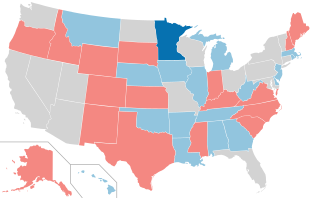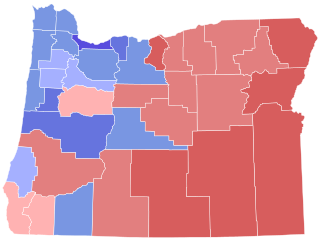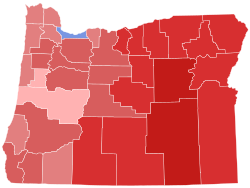
The 2002 United States Senate elections featured a series of fiercely contested elections that resulted in a victory for the Republican Party, which gained two seats and thus a narrow majority from the Democratic Party in the United States Senate. The Senate seats up for election, known as class 2 Senate seats, were last up for regular election in 1996. The election cycle was held on November 5, 2002, almost fourteen months after the September 11, 2001 attacks.

The 1998 United States Senate elections were held on November 3, with the 34 seats of Class 3 contested in regular elections. This was seen as an even contest between the Republican Party and Democratic Party. While the Democrats had to defend more seats up for election, Republican attacks on the morality of President Bill Clinton failed to connect with voters and anticipated Republican gains did not materialize. The Republicans picked up open seats in Ohio and Kentucky and narrowly defeated Democratic incumbent Carol Moseley Braun (Illinois), but these were cancelled out by the Democrats' gain of an open seat in Indiana and defeats of Republican Senators Al D'Amato and Lauch Faircloth. The balance of the Senate remained unchanged at 55–45 in favor of the Republicans.

The 1996 United States Senate elections were held on November 5, with the 33 seats of Class 2 contested in regular elections. Special elections were also held to fill vacancies. They coincided with the presidential election of the same year, in which Democrat Bill Clinton was re-elected president.

The 1992 United States Senate elections, held November 3, 1992, were elections for the United States Senate. The 34 seats of Class 3 were contested in regular elections, along with special elections to fill vacancies. They coincided with Bill Clinton's victory in the presidential election. This was the first time since 1956 that the balance of the Senate remained the same.

The 1990 United States Senate elections were held on Tuesday, November 6, 1990, with the 33 seats of Class 2 contested in regular elections. Special elections were also held to fill vacancies. The Democratic Party increased its majority with a net gain of one seat from the Republican Party. The election cycle took place in the middle of President George H. W. Bush's term, and, as with most other midterm elections, the party not holding the presidency gained seats in Congress.

The 1980 United States Senate elections were held on November 4, coinciding with Ronald Reagan's victory in the presidential election. The 34 Senate seats of Class 3 were contested in regular elections. Reagan's large margin of victory over incumbent Jimmy Carter gave a huge boost to Republican Senate candidates, allowing them to flip 12 Democratic seats and win control of the chamber for the first time since the end of the 83rd Congress in January 1955.

The 1974 United States Senate elections were held on November 5, with the 34 seats of Class 3 contested in regular elections. They occurred in the wake of the Watergate scandal, Richard M. Nixon's resignation from the presidency, and Gerald Ford's subsequent pardon of Nixon. Economic issues, specifically inflation and stagnation, were also a factor that contributed to Republican losses. As an immediate result of the November 1974 elections, Democrats made a net gain of three seats from the Republicans, as they defeated Republican incumbents in Colorado and Kentucky and picked up open seats in Florida and Vermont, while Republicans won the open seat in Nevada. Following the elections, at the beginning of the 94th U.S. Congress, the Democratic caucus controlled 60 seats, and the Republican caucus controlled 38 seats.

The 2008 United States Senate elections were held on November 4, 2008, with 35 of the 100 seats in the Senate being contested. Thirty-three seats were up for regular elections; the winners were eligible to serve six-year terms from January 3, 2009, to January 3, 2015, as members of Class 2. There were also two special elections, the winners of those seats would finish the terms that ended on January 3, 2013. The presidential election, which was won by Democrat Barack Obama, elections for all House of Representatives seats; elections for several gubernatorial elections; and many state and local elections occurred on the same date.

The 1960 United States Senate elections coincided with the election of John F. Kennedy as president on November 8, 1960. The 33 seats of Class 2 were contested in regular elections. A special election was also held on June 28, 1960, for a mid-term vacancy in North Dakota where Democrats flipped a seat to expand their majority to 66–34. As Majority Leader Lyndon Johnson was elected Vice President, Mike Mansfield became the new majority leader.

The 2006 United States Senate election in Ohio was held November 7, 2006. Incumbent Republican Mike DeWine ran for re-election, but was defeated by Democratic congressman Sherrod Brown. As of 2023, this is the most recent time a Democratic Senate candidate in Ohio won a race by double digits. Following his defeat, DeWine would later successfully run for attorney general in 2010 and 2014 and governor of Ohio in 2018 and 2022.

Gordon Harold Smith is an American politician, businessman, and academic administrator who served as a United States Senator from the state of Oregon. A Republican, he served two terms in the Senate from 1997 to 2009. On September 18, 2009, he was appointed president of the National Association of Broadcasters (NAB). As of 2023, he is the last Republican to represent Oregon in the Senate.

Bill Bradbury was an American politician who served as a member of the Oregon Legislative Assembly and as the 23rd Oregon secretary of state from 1999 to 2009. Bradbury was an unsuccessful candidate for the 2010 Oregon gubernatorial election. In 2010, he was appointed to the Northwest Power and Conservation Council by Oregon Governor Ted Kulongoski.

The 2008 United States Senate election in Oregon was held on November 4, 2008. Incumbent Republican U.S. Senator Gordon H. Smith sought reelection to a third term. Smith was the only Republican Senator from the West Coast and the only Republican holding statewide office in Oregon. He was opposed by Democrat Jeff Merkley, the Speaker of the Oregon House of Representatives, and David Brownlow of the Constitution Party of Oregon. Merkley won by a narrow margin, with Smith not conceding until two days after the election. Merkley became the first Democrat to win this seat since 1960. And since Smith was the only Republican holding statewide office in Oregon at the time, this was the first time since 1860 that no Republicans won or held statewide office in Oregon. Jeff Merkley's inauguration marked the first time since 1967 that Democrats held both of Oregon's United States Senate seats.

The 2004 United States Senate election in California took place on November 2, 2004 alongside other elections to the United States Senate in other states as well as elections to the United States House of Representatives and various state and local elections. Incumbent Democratic U.S. Senator Barbara Boxer ran for re-election and defeated Republican former Secretary of State Bill Jones. Boxer's 6.96 million votes set the all-time record for the most votes cast for one candidate in one state in one election, although it was surpassed by Senator Dianne Feinstein's 7.75 million votes in 2012.

The 2004 United States Senate election in Arkansas took place on November 2, 2004 alongside other elections to the United States Senate in other states as well as elections to the United States House of Representatives and various state and local elections.

The 2010 United States Senate election in Oregon was held on November 2, 2010 alongside other elections to the United States Senate in other states, as well as elections to the United States House of Representatives and various state and local elections. Incumbent Democratic U.S. Senator Ron Wyden won re-election to a third full term by a landslide margin of 18 points, despite the national Republican midterm wave. As of 2022, this is the only senate election since 1998 in which Deschutes County has not supported the Democratic candidate.

The 2002 United States Senate election in Wyoming was held November 5, 2002. Incumbent Republican U.S. Senator Mike Enzi won re-election to a second term.

The 2012 United States Senate election in Pennsylvania was held on November 6, 2012, alongside a presidential election, other elections to the United States Senate in other states, as well as elections to the United States House of Representatives and various state and local elections. Incumbent Democratic U.S. Senator Bob Casey, Jr. ran for and won re-election to a second term, defeating Republican nominee Tom Smith, and Libertarian nominee Rayburn Smith.

The 2014 United States Senate election in Oregon took place on November 4, 2014 to elect a member of the United States Senate to represent the State of Oregon, concurrently with the election of the Governor of Oregon, as well as other elections to the United States Senate in other states and elections to the United States House of Representatives and various state and local elections.

The 2014 Oregon gubernatorial election was held on November 4, 2014, to elect the Governor of Oregon, concurrently with other elections in Oregon and across the United States.























